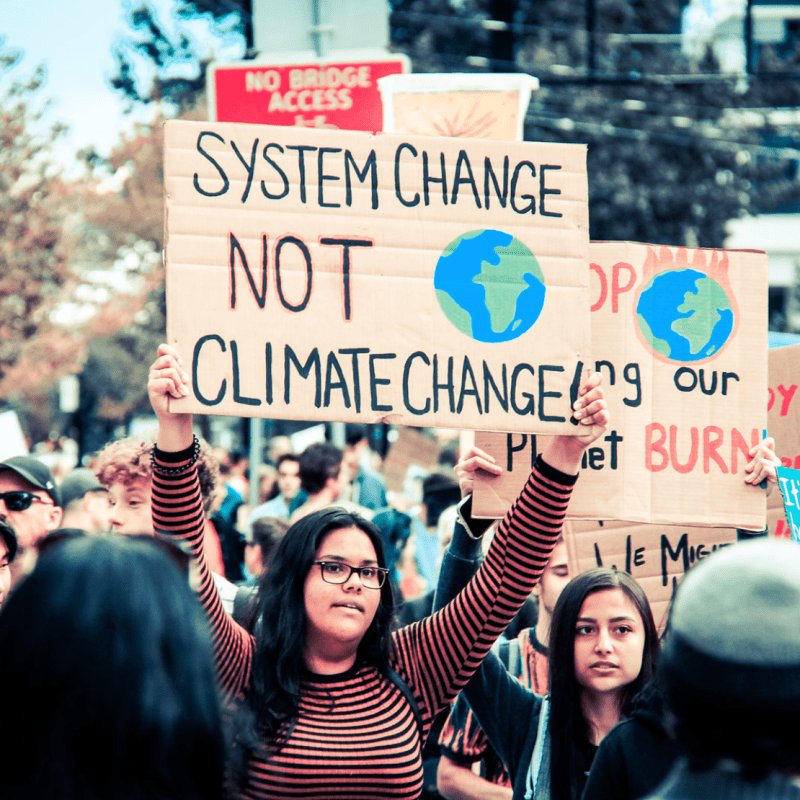City residents must massively increase the percentage of journeys they take on public transportation and using active modes within 10 years if the world is going to meet its climate targets, a new report argues — but federal governments aren't stepping up to make it happen.
The new study delivered to climate leaders at COP26 this week showed that city residents worldwide need to choose modes like walking, biking and transit for at least 40 percent of the miles they travel by 2030 in order to prevent global heating from exceeding the 1.5°-degree (Celsius) threshold and avert the worst effects of climate change — in addition to aggressive efforts to electrify as many cars on the road as possible.
And higher density/better transit cities, like London and New York, must increase their active/transit mode share percentage to closer to 80 percent — a daunting task that researchers warn will require not just robust transit investment, but also comprehensively reimagining global communities to put everything residents might need within easy transit distance.
How daunting? In New York City, for example, more than 70 percent of workers do not commute in a car, though 22 percent still do, despite some of the best transit in the world. And in Houston, only 5 percent of residents take transit, walk or bike to work. Doubling even that low figure will be tough in such a car-centric region.
In the United States, active and shared transportation accounts for just 13 percent of daily trip miles, according to federal statistics. And simply greening the other 87 percent of journeys won't cut it: previous research has shown that current vehicle electrification policies will only give zero-emission* cars 7 percent of global market share by the end of the decade, which falls short of the 20 percent experts say the planet needs — and even that will only limit warming to two degrees, and will require communities to clean up least 75 percent of the electric grid on top of it all.
If Democrats like Senator Joe Manchin of West Virginia continue to insist on "fuel-neutral" energy policies and block the passage of more aggressive legislation like the original provisions of the Build Back Better Act, that lofty goal may well prove impossible — and cities will have wasted valuable time and resources they could have devoted to the green transport solutions that are proven to work quickly.
This picture shows what people outside the #COP26 venue want. Guess what's the answer of most policy makers who are inside the venue: electric cars!
— Mohamed Mezghani (MedMezghani@mastodon.world) (@MedMezghani) November 10, 2021
We expect solutions that move people, they offer solutions that move cars.#MovePeopeNotCars#AGreenTrafficJamIsStillATrafficJam pic.twitter.com/54M4XEZLqF
Meeting aggressive mode shift targets won't be easy, but the global mayors behind the report say the rewards will be great — and not just when it comes to saving the natural ecosystems that humanity relies on.
For the relatively low price of $208 billion in public transit investment each year split between their communities, the members of the C40 Cities Climate Leadership Group — a consortium of 97 climate-focused mayors from around the world — say they could generate tens of millions of new jobs in the transport sector and beyond.
And their own economies wouldn't be the only ones to benefit: while 4.6 million of those new opportunities would be created in C40 cities themselves, nearly as many would be created in manufacturing and other supporting industries throughout their respective countries.
Those impressive economic impacts weren't the focus of conversation at the United Nations' latest climate summit, though, which advocates say focused almost exclusively on environmental solutions that would make the automotive industry rather than reducing income inequality and enriching communities more broadly.
"Amid all the discussions at COP26 on the topic of electric vehicles, we can't afford to forget the critical role public transport must and can play in hitting climate targets," said John Mark Mwanika, urban transport chair for the International Transport Workers' Federation, which co-authored the report with C40. "People who live and work in cities want better public transport, green jobs, and cleaner air. All levels of government must work together to unleash state funding over the next decade to achieve this."
Congress made what seemed like a strong start towards that goal with the passage of the Infrastructure Investment and Jobs Act last week, which devoted a historic $39 billion to public transportation agencies — but then undercut that promising commitment with another $110 billion for roads that would primarily benefit drivers, which experts believe will encourage even more Americans to get behind the wheel.
Advocates say that makes the passage of the climate-focused Build Back Better Act so urgent — and that the U.S., like cities around the world, must adopt even more comprehensive mode shift strategies in the years to come. The report authors underscore that those policies must include both robust transit commitment and strong land use reforms that put the destinations residents' need most within easy walking, rolling, or bussing distance – an issue that C40 mayors have been outspoken about in the past.
“Citizens in every major world city have the basic right to clean air, green jobs and accessible, frequent and affordable mass transportation within a 10 minute walk from their home," said Anies Baswedan, Governor of Jarkarta, Indonesia and one of the signatories of the letter. Without a revolution in public transport the world will miss the bus on tackling climate change. Time is running out.”
*Or to be more specific: zero tailpipe emission cars. They pollute far less than internal combustion vehicles, but EVs still produce greenhouse gases throughout their life cycle, in addition to emitting fine particulate matter for every mile they're driven that damage the environment and human health.






